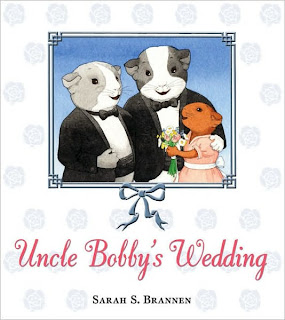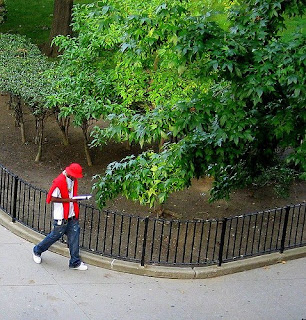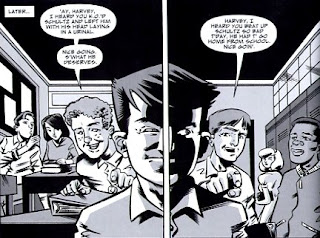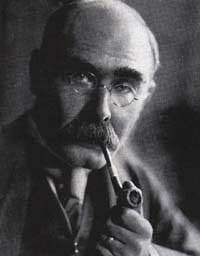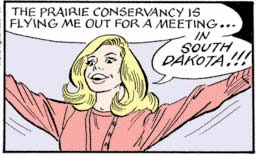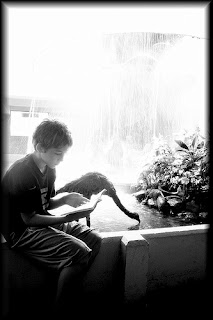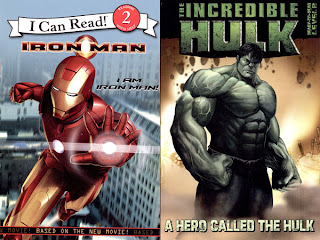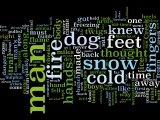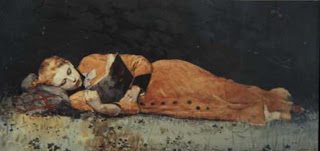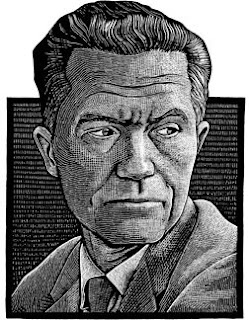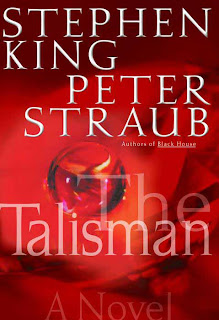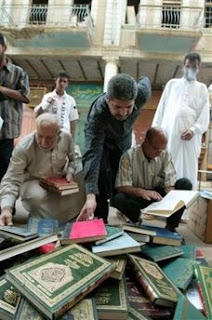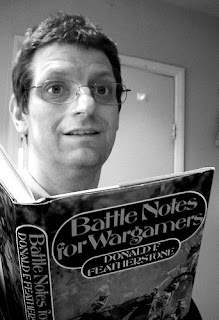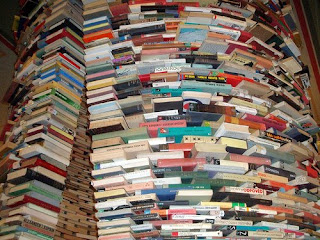
I recently found a
series of questions on the So Many Books blog that I thought I'd answer myself...
Do you remember how you developed a love of reading?In 2nd grade, Mrs. Harbison was my teacher. We were supposed to be doing math studies. I had my math workbook open but behind it I was reading a book (undoubtedly it was
The Hoboken Chicken Emergency). She found me out. "Jonathan, you're supposed to be doing your math." I looked up at her and said, "But Mrs. Harbison, I was BORN to read."
What are some books you loved as a child?Garfield comics, Ed Emberley, Maurice Sendak, Dr. Seuss.
What is your favorite genre?Non-fiction (magazine journalism, mainly) though, for the longest time, I read nothing but novels (most contemporary).
Do you have a favorite novel?I waffle between "To Kill a Mockingbird" and "Of Mice and Men."
Where do you usually read?On the bus.
When do you usually read?Whenever I'm able to (usually during my commute in the morning and evening).
Do you usually have more than one book you are reading at a time?Of course. I can't read more than three books at a time though. Usually, I'll read two. One that's mentally challenging, one that's a breeze.
Do you read nonfiction in a different way or place than you read fiction?I have to concentrate more when reading non-fiction so I usually do that during the peak hours (morning, afternoon) rather than when I'm sleepy (I'm not what you'd consider a night owl though lately I keep myself awake to watch 'Seinfeld' reruns. Still funny, those).
Do you buy most of the books you read, or borrow them, or check them out from the library?I get most all my books at the library. I love reading hardcovers and there's no way I'm going to fork over $30 for a hardcover that I'll read in a few days that I can get at the library for free.
Do you keep most of the books you buy?I try to, though space is limited so I have to weed from time to time.
If you have children, what are some of the favorite books you have shared with them?Mo Willems makes me, and my daughter, laugh.
What are you reading now?Netherland, by Joseph O'Neill;
The Book of Questions, by Pablo Neruda;
The Great Derangement: A Terrifying True Story of War, Politics & Religion At the Twilight of the American Empire, by Matt Taibbi.
Do you keep a To Be Read List?Not particularly. I thumb through Publisher Weekly's and then make note of the books I think I might want to read. Then I put holds on those specific books at the library.
What’s next?The Full Burn : On the Set, At the Bar, Behind the Wheel, and Over the Edge with Hollywood Stuntmen, by Kevin Conley
What books would you like to re-read?I re-read
Catcher in the Rye every few years. It's always those books that you read when you were younger that made an impression on you. For me, it's books by Orwell and London and Twain.
Who are your favorite authors?Impossible to list them all but a few...
Dead Ones: John Steinbeck, Pablo Neruda, William Shakespeare
Living Ones: T.C. Boyle, Jose Saramago, Annie Dillard

